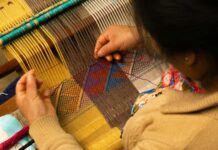Once upon a time, I was excellent at standing up for myself. I started petitions, acted on my beliefs, and spoke up when I thought something was wrong. Somewhere along the way, that girl slowly disappeared. In her place was someone who ultimately worried more about offending someone than speaking up for herself and her family.
Being extremely non-confrontational doesn’t help matters. In fact, when I disliked my obstetrician during my second pregnancy, I changed insurance providers so I would be forced to go somewhere different. It’s comical now, but at the time this seemed the most reasonable path.
As with all things, learning to advocate for my children has taken time and taught me things about myself as well.
I’ve been fortunate that my children are healthy and I haven’t had to advocate for them extensively. It wasn’t until the first time I did have to advocate for them that I realized how meek I had become. I watched in horror as a dentist held my child down on a table and glanced at his teeth, all while my child screamed and cried in fear, because the dentist was rushed due to a computer malfunction. This dentist then informed me my child needed surgery, without taking x-rays and without explaining why surgery was the only option (it wasn’t) or providing any alternate options (a different dentist provided three). I left their office with an anxious heart because I had failed my child. I trusted a stranger with a dental degree over my instincts about my son, and my son’s tear-stained face from that day still haunts me.
Despite my anger, I never spoke with that dentist or his office again. They called repeatedly to schedule the surgery, and I simply ignored their calls until they gave up. A new wave of rage would hit me each time their name popped up on my phone, but I had nothing nice to say to them, and did not wish to spend any more energy thinking about them.
I was as mad at myself as I was at them. Why hadn’t I acted differently?
This event set into motion my realization that I am not as strong as I thought, and my fear of offending someone was not as vital as protecting myself and my family. Of course, it was never a conscious effort to put politeness on a pedestal and sacrifice standing up for myself in the process. Now, it is a conscious effort to stand up for myself.
Here are a few tangible steps I’ve taken towards standing up for myself so that I can also advocate for my children and anyone without a voice:
Remember the why. The reason you’re advocating for yourself and your kids isn’t to be obnoxious or inconvenience anyone. You’re trying to do what’s best for your family, just like everyone else.
Explain your side. When the pharmacy didn’t have something ready by the time they said they would and asked me to come back later without explanation, I told them what time I had been told it would be ready. When they realized the error was theirs, they rectified the situation. In the past, I’ve had to rearrange my schedule and route to avoid simply asking them to do what they said they would. In this instance, I was still kind but pointed out why I arrived when I did and they fixed it. If they had explained that they were behind for XYZ, and really needed me to come back, I’d have worked with them.
Be persistent. We’d been waiting months for a doctor’s appointment, and they called the day before to reschedule. The first date they offered me was yet another month out, and my child had been suffering from migraines and needed to be seen. I kept asking for an earlier reschedule date, and they ultimately found us one the following week. But I had to ask several times if there was anything sooner.
Listen. In confrontational situations, it’s hard to remember that someone else feels just as strongly as you do. You can only benefit and resolve the situation to everyone’s liking by truly listening and considering the other person’s viewpoint.
Learn the lingo. If you’re advocating for your child or someone else, it’s important to be able to understand what their providers are saying. You can communicate best if you’re speaking the same language.
Ask questions. I was embarrassed to ask questions of care providers, because I worried they’d think I was doubting their capabilities or think I thought I knew more than them (when I so know I don’t!) or was trying to self-diagnose off the internet. But it’s important to realize your questions are valid, and it’s perfectly acceptable to respectfully ask them questions about how or why they advise something because they know more about it than you do.
These are small steps toward being an advocate for my family and myself, but I’m striving to stay consistent and persistent with a smile. It is possible, after all, to disagree and still treat someone kindly.
As my kids have grown bit my bit, so has my confidence in my ability to advocate for them. I ask the hard questions, and push for what’s best for them. I’m still (likely overly) concerned with being polite, but I’ve learned I can be polite and persistent.




















